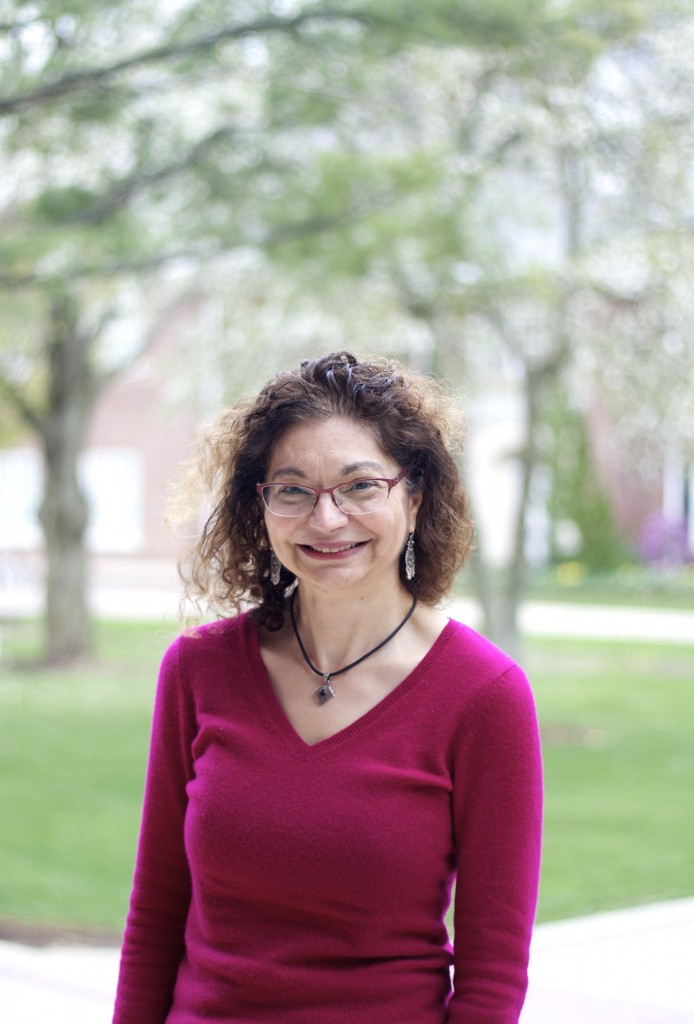Isabel Kentengian, instructor of Spanish, is a volunteer administrator for Children New Jersey. There she helps organize medical trips all over the world.
See this story in its bite-size version on our Instagram and Facebook.
“How did you become a Spanish teacher?”
“I’ve always been very involved in language education. I worked in TESOL (Teachers of English as a Second Language) and teaching Spanish at different levels.”
Prof. Kentengian has been teaching Spanish at TCNJ for 11 years and before she got here, she spent several years working in the medical field as well as working as a TESOL teacher in Chicago and Spain. She explained that the most formative part of her time at the College was a Spanish topics course she taught called “Latino Immigration.”
“We looked at portraits of immigrants in the movies and in media – the first half of the course was individual stories. The second half brought it into perspective.”
Prof. Kentengian explained that during the second half, the students read about social theories on immigration. Then, the students put their knowledge to practice by giving computer classes to Latino immigrants at El Centro in Trenton in collaboration with the Bonner Center. In addition, some students got to conduct personal interviews with the immigrants as part of the course.
“The students really got to know the [people they tutored]. There was a real respect. It was a give and take relationship,” Prof. Kentengian said, illustrating that service-based learning has been “indispensable” to her career. “We all learned a lot from that experience.”
In the Medical Spanish course she teaches at the College, she incorporated trips to local hospitals (before N.J. regulations became stricter) where students could practice their interpretation skills with real patients.
“Is there anyone that has influenced your teaching methods?”
“I would say my mentor for my Master’s from University of Illinois. He was a socio-linguist and an applied linguist and was the former president of TESOL.
Sociolinguistics informs everything that I do. Society is built on (these) little building blocks. Language really encodes society – it encodes all of our institutions. That’s how they’re built, through language.”
“What is your research experience?”
“I’m doing my dissertation on Latino students who study abroad in Spanish-speaking countries. I’m interested in their experiences.” She is currently completing an inter-disciplinary doctorate degree in international education at New York University (NYU).
“What are some discoveries that you’ve had for your dissertation?”
“Work is important. Knowing how to uncover expectations is important. We know that many varieties of Spanish that people speak are stigmatized.”
She explained that her methods and research interests were formed when she began teaching the Spanish for Spanish-Speakers course. She has also taught on the faculty-led program in Madrid and in 2016 will be leading one to Alcalá, Spain.
“I’m sensitive to people whose papers don’t match how they identify because I was in that situation for many years,” said Prof. Kentengian, who lived and worked in Spain without citizenship before obtaining it under a law to redress the wrongs of the Franco dictatorship, she explained. “I understand what it’s like to be a DREAMer.”
“What do you find inspiring in the world today?”
“I feel like everything is so inter-connected. I think that people see that now, especially youth – that you can’t just take one thing, that it all goes together. I think that people are trying to be more human in the face of more technology.”
She added a quote that she ends every class with, by famed Spanish poet Antonio Machado: “Caminante, no hay camino. Se hace camino al andar / There is no path, you make the path as you walk it.”
Finally, Prof. Kentengian spoke to her experience with Healing the Children New Jersey where she organizes medical and surgical trips to Latin America and Southeast Asia.
“I would say that in addition to the satisfaction of enabling talented medical personnel to use their skills in the most beautiful way possible, these trips also give an opportunity for people to people friendship. The more we allow those we serve to also give back in whatever way they can, the more we can build solidarity.”
—Story and Interview by Jack Meyers
—Photography by Jaryd Frankel

